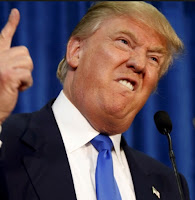Corbyn on supporting local and community media: "This important part of the media, and its fantastic workforce, could be supported by reform and expansion of an existing BBC scheme, which sees ring fenced funding for ‘local democracy reporters’ employed in local papers. Part of these funds could be made available to local, community and investigative news co-ops, with a mandate to use significant time and resources reporting on public institutions, public service providers, local government, outsourced contractors and regulated bodies.”
Corbyn on editorial standards: "The owners and editors of most of our country’s newspapers have dragged down standards so far that their hard working journalists are simply not trusted by the public...I want to see journalists and media workers set free to do their best work, not held back by bosses, billionaire owners, or the state."
Stephen Bush in the Sunday Times [£]: 'The first journalist to reveal Corbyn’s activities [in Tunisia] was . . . Corbyn himself. In 2014 he wrote up his trip for the Morning Star. Corbyn is still a regular reader of the far left daily (he is sometimes spotted texting Abbott about the contents of the paper in shadow cabinet meetings). That made some of the party’s official denials look more than a little ridiculous. Adding to the sense of farce, the party’s line seemed to change repeatedly over the course of the row."
Donald Trump @realDonaldTrump on Twitter: "There is nothing that I would want more for our Country than true FREEDOM OF THE PRESS. The fact is that the Press is FREE to write and say anything it wants, but much of what it says is FAKE NEWS, pushing a political agenda or just plain trying to hurt people. HONESTY WINS!"
The Committee to Protect Journalists: "When American leaders stand up for a free press, they embolden courageous journalists who put their lives and liberty on the line to report the news. And when American leaders fall short, they embolden the autocrats who seek to repress those journalists."
John Naughton in The Observer on Trump's tweets: "Twitter could ban Trump, but with 53.8 million followers it’s unlikely to do that. Mainstream media could start ignoring Trump’s tweets, which effectively allow him to control their news agendas, but they won’t, because he’s good for clicks and circulation. And besides, the guy is, after all, the elected president of the United States. Which, in a way, neatly summarises the problem we’ve got."
Marc Reeves, editor of the Birmingham Mail and Birmingham Live, on HoldTheFrontPage: “I doubt there’s an editor in the regions – or the nationals for that matter – who can say with hand on heart that the composition of their newsroom is as diverse as they would want it to be. In Birmingham, this is even more acute. We serve the most diverse city in the UK, yet our newsroom does not fully reflect the diversity of the communities we serve. We’ve known this for a long time, and I know journalism colleges are working hard on their own recruitment policies, but we have to take action on this directly. With the expansion of Birmingham Live and the creation of four new reporting roles, we have an opportunity to take control of the process and to try to affect something of a step change. We will ensure that at least 50pc of the candidates we shortlist for interview have black or minority ethnic backgrounds."
Jane Martinson on Metro in Prospect magazine: "In less than two decades, Metro has transformed from something described to one executive as a “shitty little freesheet” into a successful paper with a young audience who appreciates its basic news coverage. Whatever its future prospects, Metro has shown that there is a market, perhaps even still growing, for a newspaper based on facts in a world that increasingly seems to be anything but."
Paul Broster, director of journalism at the University of Salford, which is offering a new degree course combining journalism with public relations, as reported by Press Gazette: “The nature of journalism has changed, with those starting in the profession expected to have a wide range of digital skills alongside the ability to write well, find stories and interview. Our journalism programmes have always included a public relations module, but this has become increasingly popular over the years. Many of our journalism graduates now go on to work in public relations, while there is also a huge amount of opportunities helping large organisations raise their profile by creating powerful digital content.”
Suchandrika Chakrabarti in the New Statesman: "PR is already winning. What we really need is more well-trained journalists, and we need to find ways to keep them in the industry. If only someone could invent a degree to figure that out."
[£]=paywall














No comments:
Post a Comment